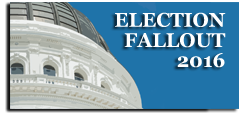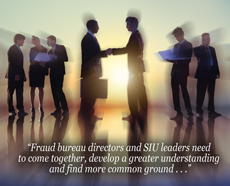
Changes at the state and federal levels could affect enforcement
While the shock of the national elections continues to be felt, the Coalition is sizing up the likely impact on fraud-fighting.
The biggest concern is whether the Trump administration will continue the federal government’s aggressive stand in combatting healthcare fraud. FBI investigations and Department of Justice prosecutions have helped set records for arrests, convictions and financial recoveries in the last eight years.
Another potential concern is whether repealing the Affordable Care Act will gut anti-fraud programs that were part of the original bill. Medicare has much more capacity and authority to crackdown and prevent healthcare fraud today. Its ability to shut down scams quickly and use the latest technology such as predictive modeling could be in jeopardy.
Republicans also likely will push for interstate sales of health insurance. We’ve repeatedly warned that such an unregulated system will spur scam artists to sell fake policies to unsuspecting consumers.
Another potential casualty could be the Healthcare Fraud Prevention Partnership, an alliance of more than 60 private insurers and public agencies.
The partnership’s data-sharing program has helped save more than $260 million for healthcare payers. It would be foolish not to continue, but the program operates at the whim of the administration and HHS secretary. That’s one reason we advocated writing the program into federal law, but it’s too late for that now.
As for state elections, Wayne Goodwin, the insurance commissioner in North Carolina, lost his election. He’s a strong supporter of anti-fraud measures. Goodwin sponsors an effective fraud bureau, and chairs the NAIC Anti-Fraud Task Force.
The change of governors and insurance commissioners in other states, such as Delaware, also may affect law-enforcement efforts to combat fraud.
We’ll continue analyzing the federal and state results. We’ll report developments as they emerge. In the meantime, the Coalition stands ready to work with the new office holders to advocate strong measures that effectively combat insurance fraud.
 More common ground needed on reporting, acting on suspected scams
More common ground needed on reporting, acting on suspected scams